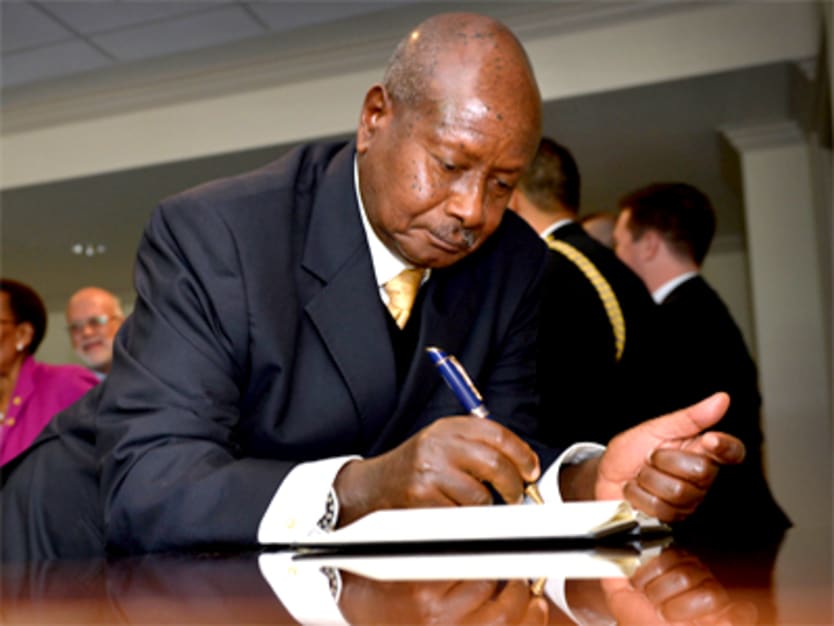Netherlands to review support for CSOs backing Ugandan anti-gay bill

Ugandan President Yoweri Museveni is expected to sign on Monday a bill that will sentence individuals found to have participated in homosexual acts to life imprisonment, just a few days after announcing he would postpone his decision on until he got scientific advice from the United States on whether homosexuality is linked to genetics.
Government spokesman Ofwono Opondo however said on Twitter: “Propaganda for blackmail against anti-gay law by European & US media won’t derail Pres. Museveni signing.”
The bill has been a cause for serious concern among the international community, and some of Uganda’s aid donors have sounded the alarm on the implications this would have on their relations with the African country.
The Netherlands, for instance — whose bilateral aid to Uganda for 2014 amounts to €22 million euros ($30.21 million) – had already suspended its direct budget support to the government, and is now considering what to do with civil society organizations receiving Dutch aid that will be found to have backed the bill. Roel van der Meij, spokesperson for Minister for Foreign Trade and Development Cooperation Lilianne Ploumen, didn’t clarify whether the suspicion is on local civil society groups only, as he told Devex there’s no reason to believe that any organization currently receiving aid from the Netherlands has supported the bill.
A total of €9 million of the bilateral allocation is for programs on security and rule of law in Uganda, which Van der Meij said is “partly aimed at ensuring the rights of LGBT people.”
On top of that, the Dutch government has separate contributions to NGOs and multilateral organizations, some of which target programs for LGBTs in East and Southern Africa, as was NGO Hivos’ program dedicated to building the capacity of LGBT organizations in Uganda, Kenya and Tanzania.
“The bill is unacceptable and cannot go unanswered,” Minister of Foreign Affairs Frans Timmermans already said in a statement. The Dutch government and others are expected to issue a formal response following the bill’s signing on Monday.
The law appears to have generated a stronger response among the international community. In January, when Nigerian President Goodluck Jonathan approved a similar bill that criminalized even LGBT gatherings, many of the country’s donors expressed their concerns, but none appeared to have moved to suspend their assistance to the country, although some, like the United Kingdom, are no longer channeling money directly to the government.
Homosexuality and acts relating to it are a huge issue in many African countries, where same-sex relations are deemed illegal. More than 70 countries have put that in legislation, and the issue of donors using their aid as leverage in this debate has been on and off the discussion table, as well as raised differing opinions among the development community.
One Devex reader pointed out in our story on anti-gay laws in January that “you don’t solve a problem by a negative solution,” or cutting aid shouldn’t be an option. Another reader meanwhile suggested donors take such actions into careful consideration, arguing: “Giving away money to governments that abuse their own people is immoral and counterproductive.”
This latest move would add to the many battles LGBTI development workers face, as space for their rights remain restricted in the open and at the workplace, and many donors’ engagement on the issue remains limited.
Read more development aid news online, and subscribe to The Development Newswire to receive top international development headlines from the world’s leading donors, news sources and opinion leaders — emailed to you FREE every business day.
Search for articles
Most Read
- 1
- 2
- 3
- 4
- 5








